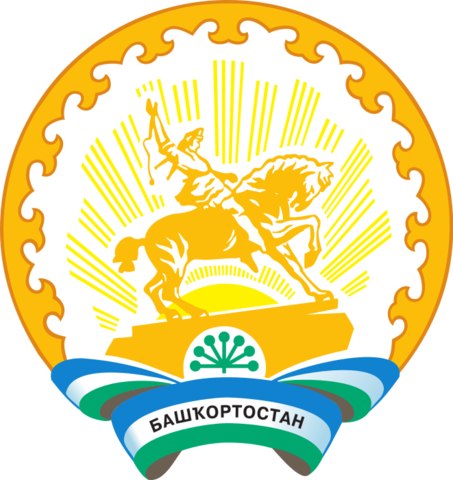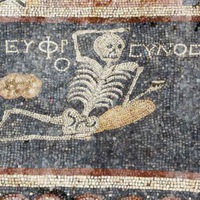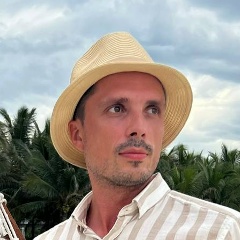Этот пост для [id502729|Ильи Зеленцова] в рамках #estonian_challenge и заодно одна из моих любимых историй.
Я думаю, что не ошибусь, если скажу, что имя Салавата Юлаева почти у всех на слуху, и даже если вы не интересуетесь хоккеем, то нет-нет, да и услышите в какой-нибудь минутке спортивных новостей, как сыграл очередной матч уфимский спортивный клуб "Салават Юлаев". Даже не зная, в принципе, несложно предположить наугад, что Салават Юлаев — национальный герой башкирского народа, но чем он конкретно прославился — уже известно меньше (нет, он не хоккеист и не большевик). И уж вряд ли вы знали, что этот знаменитый башкир, украшающий ныне герб Башкортостана, большую часть жизни прожил в Эстонии. Правильнее сказать — провел, но об этом ниже.
Салават Юлаев был сподвижником Емельяна Пугачева, который, как все знают, возглавлял Крестьянское восстание 1773—1775 гг. на Урале. Все, наверное, помнят, что движущей силой Пугачева были казаки, однако "пламя" распространялось быстро, пожар войны принял масштабные формы, и в какой-то момент к казакам примкнули отряды башкир, которые возглавляли наш сегодняшний герой и его отец (отца звали Юлай, он был опытным воякой, интересно, что он вообще играл не меньшую роль в восстании, но... культ национального героя впоследствии почему-то сделали из его сына (потому что тот моложе и симпатичнее?)), что для этого края было вовсе неудивительно. Достаточно посмотреть годы башкирских восстаний за предшествующее столетие (1662—1664, 1681—1684, 1704—1711, 1735—1736, 1737—1738, 1739—1740, 1755—1756 и собственно 1773—1775), чтобы понять, что ребята любили давать жару при первой возможности. Но нельзя сказать, что для этого у них не было повода. Когда Иван Грозный кое-как присоединил башкир к России, они умудрились договориться с Москвой об относительной автономии (религиозной, территориальной и пр.), власть же то и дело нарушала договор (Урал — слишком лакомый кусочек для развития промышленности, а чтобы ее развивать, нужна земля, нувыпоняли), и тогда это вызывало взрывную реакцию у местного населения. Восстания, конечно, подавлялись, был подавлен и этот бунт.
Здесь нужно вставить какую-нибудь пафосную фразу, которыми всегда полны биографии национальных героев, например, Салават держался до последнего и не предавал товарищей. Вообще, это правда, его отряды продолжали обороняться уже после того, как схватили Пугачева и восстание явно потеряло смысл, и если бы не предательство внутри отряда, то, может, и дольше бы держались. На суде и под пытками Салават жестко придерживался линии, что выступал против власти, а людей не убивал.
Вся судебная волокита длилась больше полугода, его (и его отца) таскали из тюрьмы в тюрьму. За это время уже казнили Пугачева, а Екатерина Великая решила сменить гнев на милость (для оживления картинки предлагаю вспомнить "Капитанскую дочку" Пушкина). Возможно, именно поэтому Салавату Юлаеву не вынесли смертный приговор, а дали пожизненное заключение в крепости. Крепость называлась Рогервик и находилась на территории современного города Палдиски в 50 км западнее Таллинна. Там и провел остаток своей жизни герой восстания Пугачева. А теперь посмотрите, как эта история выглядит в цифрах. Родился в 1754 году, восстание было в 1773 году, т.е. на момент событий было ему всего 19 лет. Год повстанческой жизни (или героических подвигов, кто как на это смотрит), после этого кандалы и тюрьма. Умер в 1800 году, проведя 26 лет своей жизни на берегу Балтийского моря. На момент 19-летия у него уже три жены (он мусульманин) и дети.
Если бы не Революция 1917 года и последующая советизация страны, создавшие очень плодородную почву для самых мифов о героях из народа, может быть, мы никогда бы не услышали о Салавате Юлаеве, как не слышали о его многочисленных предшественниках, поднимавших башкирские бунты. Но судьба распорядилась иначе, и в Башкирии, насколько я понимаю, и сейчас сохраняется культ Салавата Юлаева как национального героя: его именем назван не только хоккейный клуб, но, естественно, разные улицы, проспекты и учреждения. О нем написана опера и снят фильм. Поставлено огромное количество памятников.
Есть такой памятник и в Палдиски. Коротко о городе, если вы там не были. Современный Палдиски — это город-порт, состоящий из советских бетонных пятиэтажек (честно, не самое красивое место в Эстонии). Только огромный маяк на мысе Пакри слегка спасает положение, но атмосфера из-за огромного количества военных заброшек на подъезде и в окрестностях все равно мрачноватая. Если еще и знать о том, что в 10 км находился немецкий концлагерь в Клооге, то картинка, конечно, рисуется нерадужная. Памятник Салавату Юлаеву в этом контексте выглядит особенно нежданно, что в свое время меня очень удивило. Надеюсь, удивились и вы.
P.S. Если честно, Илья, я не очень поняла, считать ли твой коммент "Божий суд еще верховнее земного..." заявкой на участие, но решила, что интересная посмертная судьба осужденного при жизни человека вполне подходит под описание темы. :)
https://vignette.wikia.nocookie.net/georus/images/a/a8/%D0%93%D0%B5%D1%80%D0%B1_%D0%91%D0%B0%D1%88%D0%BA%D0%BE%D1%80%D1%82%D0%BE%D1%81%D1%82%D0%B0%D0%BD%D0%B0.svg/revision/latest/scale-to-width-down/453?cb=20100420111005&path-prefix=ru
http://www.gazeta-region.ru/wp-content/uploads/2014/02/salavat-julaev-bust-prokrust.jpg
Я думаю, что не ошибусь, если скажу, что имя Салавата Юлаева почти у всех на слуху, и даже если вы не интересуетесь хоккеем, то нет-нет, да и услышите в какой-нибудь минутке спортивных новостей, как сыграл очередной матч уфимский спортивный клуб "Салават Юлаев". Даже не зная, в принципе, несложно предположить наугад, что Салават Юлаев — национальный герой башкирского народа, но чем он конкретно прославился — уже известно меньше (нет, он не хоккеист и не большевик). И уж вряд ли вы знали, что этот знаменитый башкир, украшающий ныне герб Башкортостана, большую часть жизни прожил в Эстонии. Правильнее сказать — провел, но об этом ниже.
Салават Юлаев был сподвижником Емельяна Пугачева, который, как все знают, возглавлял Крестьянское восстание 1773—1775 гг. на Урале. Все, наверное, помнят, что движущей силой Пугачева были казаки, однако "пламя" распространялось быстро, пожар войны принял масштабные формы, и в какой-то момент к казакам примкнули отряды башкир, которые возглавляли наш сегодняшний герой и его отец (отца звали Юлай, он был опытным воякой, интересно, что он вообще играл не меньшую роль в восстании, но... культ национального героя впоследствии почему-то сделали из его сына (потому что тот моложе и симпатичнее?)), что для этого края было вовсе неудивительно. Достаточно посмотреть годы башкирских восстаний за предшествующее столетие (1662—1664, 1681—1684, 1704—1711, 1735—1736, 1737—1738, 1739—1740, 1755—1756 и собственно 1773—1775), чтобы понять, что ребята любили давать жару при первой возможности. Но нельзя сказать, что для этого у них не было повода. Когда Иван Грозный кое-как присоединил башкир к России, они умудрились договориться с Москвой об относительной автономии (религиозной, территориальной и пр.), власть же то и дело нарушала договор (Урал — слишком лакомый кусочек для развития промышленности, а чтобы ее развивать, нужна земля, нувыпоняли), и тогда это вызывало взрывную реакцию у местного населения. Восстания, конечно, подавлялись, был подавлен и этот бунт.
Здесь нужно вставить какую-нибудь пафосную фразу, которыми всегда полны биографии национальных героев, например, Салават держался до последнего и не предавал товарищей. Вообще, это правда, его отряды продолжали обороняться уже после того, как схватили Пугачева и восстание явно потеряло смысл, и если бы не предательство внутри отряда, то, может, и дольше бы держались. На суде и под пытками Салават жестко придерживался линии, что выступал против власти, а людей не убивал.
Вся судебная волокита длилась больше полугода, его (и его отца) таскали из тюрьмы в тюрьму. За это время уже казнили Пугачева, а Екатерина Великая решила сменить гнев на милость (для оживления картинки предлагаю вспомнить "Капитанскую дочку" Пушкина). Возможно, именно поэтому Салавату Юлаеву не вынесли смертный приговор, а дали пожизненное заключение в крепости. Крепость называлась Рогервик и находилась на территории современного города Палдиски в 50 км западнее Таллинна. Там и провел остаток своей жизни герой восстания Пугачева. А теперь посмотрите, как эта история выглядит в цифрах. Родился в 1754 году, восстание было в 1773 году, т.е. на момент событий было ему всего 19 лет. Год повстанческой жизни (или героических подвигов, кто как на это смотрит), после этого кандалы и тюрьма. Умер в 1800 году, проведя 26 лет своей жизни на берегу Балтийского моря. На момент 19-летия у него уже три жены (он мусульманин) и дети.
Если бы не Революция 1917 года и последующая советизация страны, создавшие очень плодородную почву для самых мифов о героях из народа, может быть, мы никогда бы не услышали о Салавате Юлаеве, как не слышали о его многочисленных предшественниках, поднимавших башкирские бунты. Но судьба распорядилась иначе, и в Башкирии, насколько я понимаю, и сейчас сохраняется культ Салавата Юлаева как национального героя: его именем назван не только хоккейный клуб, но, естественно, разные улицы, проспекты и учреждения. О нем написана опера и снят фильм. Поставлено огромное количество памятников.
Есть такой памятник и в Палдиски. Коротко о городе, если вы там не были. Современный Палдиски — это город-порт, состоящий из советских бетонных пятиэтажек (честно, не самое красивое место в Эстонии). Только огромный маяк на мысе Пакри слегка спасает положение, но атмосфера из-за огромного количества военных заброшек на подъезде и в окрестностях все равно мрачноватая. Если еще и знать о том, что в 10 км находился немецкий концлагерь в Клооге, то картинка, конечно, рисуется нерадужная. Памятник Салавату Юлаеву в этом контексте выглядит особенно нежданно, что в свое время меня очень удивило. Надеюсь, удивились и вы.
P.S. Если честно, Илья, я не очень поняла, считать ли твой коммент "Божий суд еще верховнее земного..." заявкой на участие, но решила, что интересная посмертная судьба осужденного при жизни человека вполне подходит под описание темы. :)
https://vignette.wikia.nocookie.net/georus/images/a/a8/%D0%93%D0%B5%D1%80%D0%B1_%D0%91%D0%B0%D1%88%D0%BA%D0%BE%D1%80%D1%82%D0%BE%D1%81%D1%82%D0%B0%D0%BD%D0%B0.svg/revision/latest/scale-to-width-down/453?cb=20100420111005&path-prefix=ru
http://www.gazeta-region.ru/wp-content/uploads/2014/02/salavat-julaev-bust-prokrust.jpg
This post is for [id502729 | Ilya Zelentsov] as part of #estonian_challenge and at the same time one of my favorite stories.
I think that I will not be mistaken if I say that almost everyone hears the name of Salavat Yulaev, and even if you are not interested in hockey, then no, no, and you will hear in some minute sports news how Ufa sports played another match club "Salavat Yulaev". Even without knowing, in principle, it is not difficult to guess at random that Salavat Yulaev is a national hero of the Bashkir people, but what exactly he became famous for is less known (no, he is not a hockey player and not a Bolshevik). And you hardly knew that this famous Bashkir, now adorning the coat of arms of Bashkortostan, lived most of his life in Estonia. Correct to say - spent, but more on that below.
Salavat Yulaev was an associate of Emelyan Pugachev, who, as everyone knows, led the Peasant Uprising of 1773-1775. in the Urals. Everyone probably remembers that the Cossacks were the driving force of Pugachev, however, the "flame" spread quickly, the fire of war took large-scale forms, and at some point the Bashkir forces joined our Cossacks, headed by our today's hero and his father (his father was Yulai , he was an experienced fighter, it is interesting that he played no less a role in the uprising, but ... the cult of the national hero for some reason later made him his son (because he is younger and prettier?)), that for this region was not surprising. It is enough to look at the years of the Bashkir uprisings in the preceding century (1662–1664, 1681–1684, 1704–1711, 1735–1736, 1737–1738, 1739–1740, 1755–1756, and 1773–1775 itself) to give heat as soon as possible. But it cannot be said that for this they had no reason. When Ivan the Terrible somehow joined the Bashkirs to Russia, they managed to come to an agreement with Moscow on relative autonomy (religious, territorial, etc.), but the government continually violated the contract (the Urals was too tasty for industrial development, but to develop it, need land, nouveaupals), and then it caused an explosive reaction from the local population. The uprisings, of course, were suppressed, and this riot was crushed.
Here you need to insert some pretentious phrase with which the biographies of national heroes are always full, for example, Salavat kept to the last and did not betray his comrades. In general, this is true, his troops continued to defend themselves after they seized Pugachev and the uprising clearly lost its meaning, and if not for the treachery within the detachment, then maybe it would have lasted longer. At trial and under torture, Salavat strictly adhered to the line that he spoke out against the authorities and did not kill people.
All judicial red tape lasted more than six months, he (and his father) were dragged from prison to prison. During this time, Pugachev was already executed, and Catherine the Great decided to change her anger to mercy (to revive the picture, I suggest we recall Pushkin's Captain's Daughter). Perhaps that is why Salavat Yulaev was not sentenced to death, but was given a life sentence in a fortress. The fortress was called Rogervik and was located on the territory of the modern city of Paldiski, 50 km west of Tallinn. There the hero of the uprising Pugachev spent the rest of his life. And now look at how this story looks in numbers. Born in 1754, the uprising was in 1773, i.e. at the time of the events he was only 19 years old. A year of rebel life (or heroic exploits, who looks at it like that), then shackles and prison. He died in 1800, having spent 26 years of his life on the shores of the Baltic Sea. At the time of the 19th anniversary, he already has three wives (he is a Muslim) and children.
If it were not for the 1917 revolution and the subsequent Sovietization of the country, which created very fertile ground for the very myths about the heroes of the people, maybe we would never have heard of Salavat Yulaev, as we had not heard of his many predecessors who had raised Bashkir revolts. But fate decided otherwise, and in Bashkiria, as I understand it, the cult of Salavat Yulaev as a national hero is still preserved: not only the hockey club is named after him, but, of course, different streets, avenues and institutions. An opera was written about him and a film was made. Put a huge number of monuments.
There is such a monument in Paldiski. Briefly about the city, if you have not been there. Modern Paldiski is a port city consisting of Soviet concrete five-story buildings (honestly, not the most beautiful place in Estonia). Only a huge lighthouse on Cape Pakri saves the situation a little, but the atmosphere is still gloomy due to the huge amount of military abandons at the entrance and in the vicinity. If you also know that there was a German concentration camp in Klooga in 10 km, then the picture, of course, is drawn as irrelevant. Monument to Salavat Yulaev in this context looks especially unexpected, which at one time I was very surprised. I hope you were surprised too.
P.S. To be honest, Ilya, I didn’t really understand whether to consider your comment "God's judgment is even higher than the earthly one ..." as an application for participation, but I decided that the interesting posthumous fate of a person convicted during his lifetime fits the description of the topic. :)
https: // vignett
I think that I will not be mistaken if I say that almost everyone hears the name of Salavat Yulaev, and even if you are not interested in hockey, then no, no, and you will hear in some minute sports news how Ufa sports played another match club "Salavat Yulaev". Even without knowing, in principle, it is not difficult to guess at random that Salavat Yulaev is a national hero of the Bashkir people, but what exactly he became famous for is less known (no, he is not a hockey player and not a Bolshevik). And you hardly knew that this famous Bashkir, now adorning the coat of arms of Bashkortostan, lived most of his life in Estonia. Correct to say - spent, but more on that below.
Salavat Yulaev was an associate of Emelyan Pugachev, who, as everyone knows, led the Peasant Uprising of 1773-1775. in the Urals. Everyone probably remembers that the Cossacks were the driving force of Pugachev, however, the "flame" spread quickly, the fire of war took large-scale forms, and at some point the Bashkir forces joined our Cossacks, headed by our today's hero and his father (his father was Yulai , he was an experienced fighter, it is interesting that he played no less a role in the uprising, but ... the cult of the national hero for some reason later made him his son (because he is younger and prettier?)), that for this region was not surprising. It is enough to look at the years of the Bashkir uprisings in the preceding century (1662–1664, 1681–1684, 1704–1711, 1735–1736, 1737–1738, 1739–1740, 1755–1756, and 1773–1775 itself) to give heat as soon as possible. But it cannot be said that for this they had no reason. When Ivan the Terrible somehow joined the Bashkirs to Russia, they managed to come to an agreement with Moscow on relative autonomy (religious, territorial, etc.), but the government continually violated the contract (the Urals was too tasty for industrial development, but to develop it, need land, nouveaupals), and then it caused an explosive reaction from the local population. The uprisings, of course, were suppressed, and this riot was crushed.
Here you need to insert some pretentious phrase with which the biographies of national heroes are always full, for example, Salavat kept to the last and did not betray his comrades. In general, this is true, his troops continued to defend themselves after they seized Pugachev and the uprising clearly lost its meaning, and if not for the treachery within the detachment, then maybe it would have lasted longer. At trial and under torture, Salavat strictly adhered to the line that he spoke out against the authorities and did not kill people.
All judicial red tape lasted more than six months, he (and his father) were dragged from prison to prison. During this time, Pugachev was already executed, and Catherine the Great decided to change her anger to mercy (to revive the picture, I suggest we recall Pushkin's Captain's Daughter). Perhaps that is why Salavat Yulaev was not sentenced to death, but was given a life sentence in a fortress. The fortress was called Rogervik and was located on the territory of the modern city of Paldiski, 50 km west of Tallinn. There the hero of the uprising Pugachev spent the rest of his life. And now look at how this story looks in numbers. Born in 1754, the uprising was in 1773, i.e. at the time of the events he was only 19 years old. A year of rebel life (or heroic exploits, who looks at it like that), then shackles and prison. He died in 1800, having spent 26 years of his life on the shores of the Baltic Sea. At the time of the 19th anniversary, he already has three wives (he is a Muslim) and children.
If it were not for the 1917 revolution and the subsequent Sovietization of the country, which created very fertile ground for the very myths about the heroes of the people, maybe we would never have heard of Salavat Yulaev, as we had not heard of his many predecessors who had raised Bashkir revolts. But fate decided otherwise, and in Bashkiria, as I understand it, the cult of Salavat Yulaev as a national hero is still preserved: not only the hockey club is named after him, but, of course, different streets, avenues and institutions. An opera was written about him and a film was made. Put a huge number of monuments.
There is such a monument in Paldiski. Briefly about the city, if you have not been there. Modern Paldiski is a port city consisting of Soviet concrete five-story buildings (honestly, not the most beautiful place in Estonia). Only a huge lighthouse on Cape Pakri saves the situation a little, but the atmosphere is still gloomy due to the huge amount of military abandons at the entrance and in the vicinity. If you also know that there was a German concentration camp in Klooga in 10 km, then the picture, of course, is drawn as irrelevant. Monument to Salavat Yulaev in this context looks especially unexpected, which at one time I was very surprised. I hope you were surprised too.
P.S. To be honest, Ilya, I didn’t really understand whether to consider your comment "God's judgment is even higher than the earthly one ..." as an application for participation, but I decided that the interesting posthumous fate of a person convicted during his lifetime fits the description of the topic. :)
https: // vignett


У записи 20 лайков,
1 репостов,
2057 просмотров.
1 репостов,
2057 просмотров.
Эту запись оставил(а) на своей стене Полина Оскольская









































